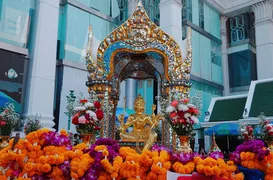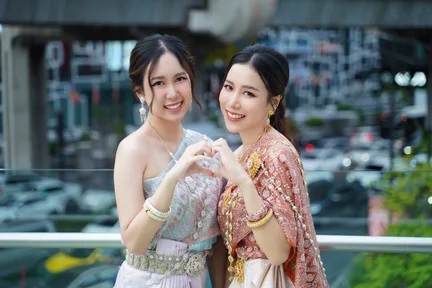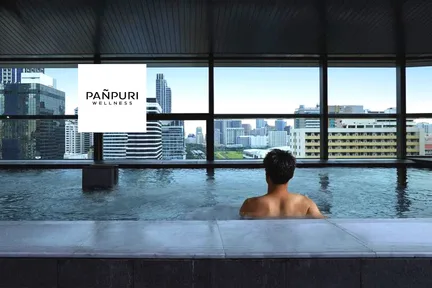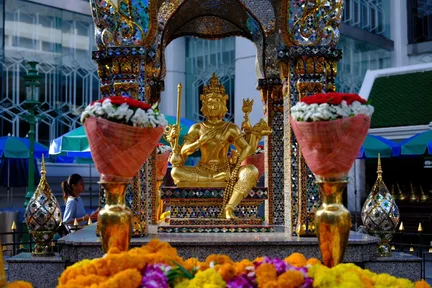Erawan Shrine

The best of Erawan Shrine
Bucket-list experiences
Make it a getaway
Events with a lot of buzz
Trouble-free transport
All that's good & tasty
More to explore
Why people love Erawan Shrine
Nearby places to go
FAQs about Erawan Shrine
When is the best time to visit the Erawan Shrine in Bangkok?
How can I get to the Erawan Shrine in Bangkok?
What should I wear when visiting the Erawan Shrine in Bangkok?
Are there any local customs or etiquette I should be aware of when visiting the Erawan Shrine?
Where should I buy offerings when visiting the Erawan Shrine?
Are there any safety tips I should keep in mind when visiting the Erawan Shrine?
What to know before visiting Erawan Shrine
Remarkable Landmarks and Must-Visit Sights
Erawan Shrine
The Erawan Shrine, also known as San Thao Maha Phrom, is a significant icon in Bangkok. Dedicated to Brahma, the Hindu god of creation, the shrine is a place of worship and offerings, attracting both locals and tourists. Witness traditional Thai dancers and experience the spiritual ambiance of this sacred site.
Phra Phrom Statue
The centerpiece of the Erawan Shrine, the Phra Phrom statue is a symbol of divine protection and blessings. Witness worshippers offering prayers and floral garlands to seek favor and guidance.
Thai Dance Performances
Experience the vibrant cultural heritage of Thailand with traditional Thai dance performances at the shrine. These captivating dances are believed to bring good luck and prosperity to those who witness them.
Culture and History
The Erawan Shrine's history dates back to the 1950s when it was built to appease bad karma surrounding the construction of the Erawan Hotel. Despite facing tragedies and misfortunes, the shrine has become a symbol of hope and faith for many Thais. Explore the cultural significance of this unique blend of Hindu and Buddhist traditions.
Local Cuisine
While visiting the Erawan Shrine, don't miss the opportunity to indulge in popular local dishes such as Pad Thai, Tom Yum Goong, and Mango Sticky Rice. Experience the vibrant flavors of Thai cuisine at nearby restaurants and street food stalls.
Historical Legacy
Delve into the history of the shrine, built in 1956 to counter negative influences during the construction of the Erawan Hotel. Learn about the mishaps and events that led to the shrine's establishment and its subsequent cultural importance.
Explore more on Klook
Top attractions in Bangkok
- 1 Icon Siam
- 2 Grand Palace
- 3 Centralworld
- 4 Wat Arun Ratchawararam
- 5 Safari World
- 6 Siam Paragon
- 7 Chatuchak Weekend Market
- 8 Wat Pho
- 9 Jodd Fairs
- 10 Khaosan Road
- 11 Wat Paknam Phasi Charoen
- 12 Mahanakhon
- 13 Phrom Phong
- 14 Banthat Thong
- 15 Jim Thompson House
- 16 Lumphini Park
- 17 Chit Lom BTS Station
- 18 Sathorn Pier
- 19 River City Bangkok




